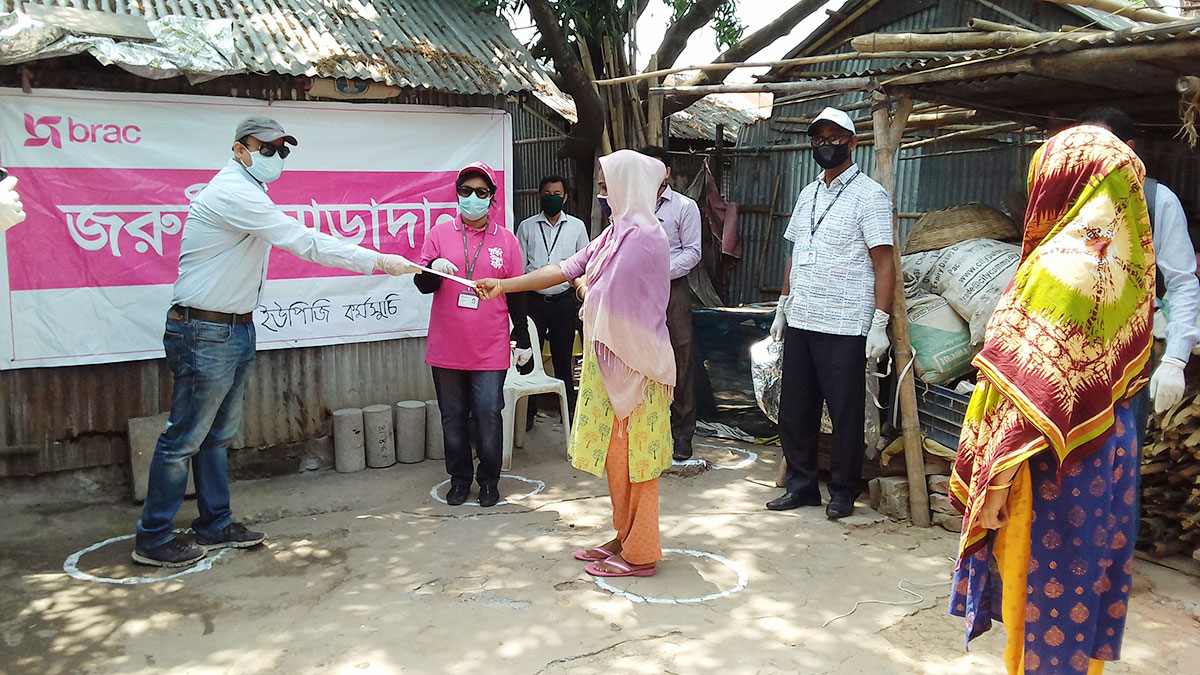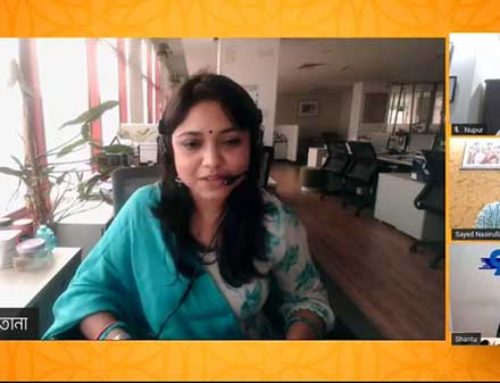BRAC Bangladesh was established in 1972, in response to the post-war devastation of Bangladesh’s liberation war. It has grown from a small relief operation in a few villages in the country to become the leading non-governmental organisation (NGO) in the world, operating in 11 countries and reaching nearly 126 million clients with an aim towards reaching 250 million people by the end of next decade. BRAC’s mission is to empower the poor through services and economic opportunities in order to address the root causes of poverty and realise the potential of the most disadvantaged people. BRAC has been named as the number one NGO for the fifth year in a row by NGO Advisor. As response to the current coronavirus pandemic; BRAC is leading with the slogan – Make Empathy Go Viral!
PROGRAMMATIC INTERVENTIONS IN RESPONSE TO COVID-19
BRAC Initiatives for Covid-19
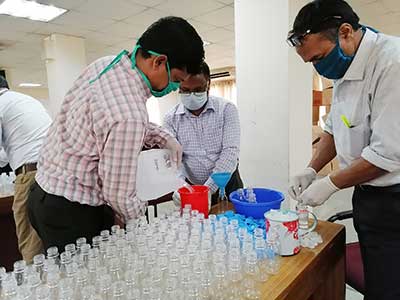
- Mass campaigning by sending BRAC staff to a million households with information and sanitation products.
- Focusing on behavioural change and community engagement for prevention of spread
- Connecting doctors to IEDCR for public hotlines.
- Deployiing field support team at community level to control community outbreak
- Sourcing ventilators and beds for under resourced hospitals and creating public resource for proper use of PPE
- Networking with 50,000 community health workers for door-to-door awareness campaigns
- Keeping all 41 of BRAC’s maternity centres open during the lockdown to provide maternity healthcare and normal delivery services
- Helping and relief to low-income earners in cities and rural villages by the initial commitment of BDT 150 million
- Ensuring the funds reach the ground and distributed to 100,000 people who live in extreme poverty.
- Undertaking rapid needs assessment and evidence generation for mid to long-term response for economic revitalisation of poor people
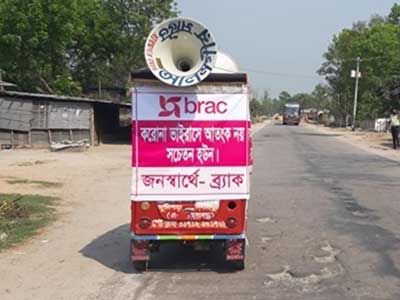
- Supporting national efforts to continue secondary and primary classes on television.
- Piloting and scaling remote learning through basic phones around pre-primary school students of 24600 with a special focus on psychosocial counselling
- 11 lab technicians of BRAC’s TB control programme collect samples from suspected COVID-19 cases in Lakshmipur, Comilla, Brahmanbaria, Bhola, Patuakhali, Khulna, Narail and Chattogram areas.
- 15 organisations have now contributed to BRAC’s call for urban slum mapping
- Supporting Rohingya camps in Cox’s Bazar over phone services
Outreach of interventions
- Total Number of BRAC covid-19 program participants: 18.8 M
- Number of disable participants in BRAC covid-19 program: 226,907
- Total Number of families with cash support: 100,000
- Total number of families received cash support: 99,450
- Total items of distributed protective wear: 876,000
- Total items of distributed hygiene products: 1.2 M
- Total number of working district: 64
- Total number of BRAC workers in field: 100,000
- Number of microfinance clients getting covid 19 awareness voice message: 4.3 M
- Number of people getting awareness voice message by social media: 86 M
- Number of BRAC stuff getting training on Covid-19: 133,50
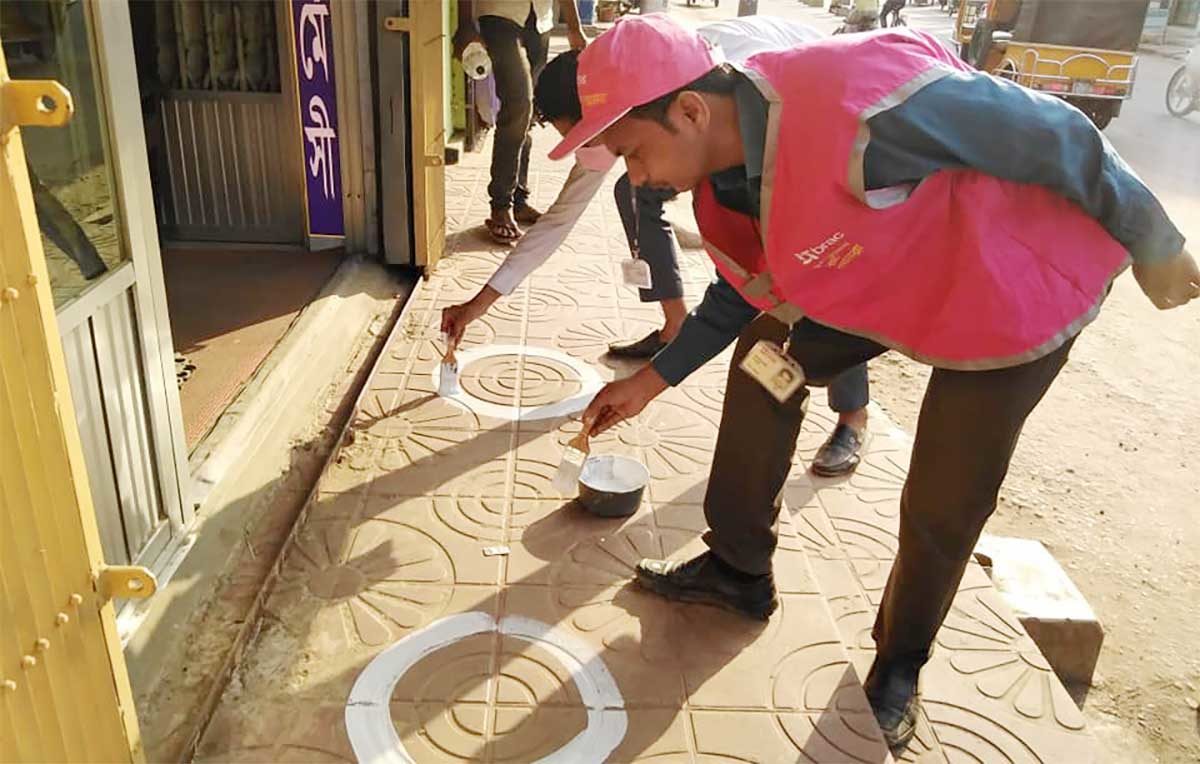
BRAC Partnerships
Partnering with government agencies like a2i of prime minister office, Directorate General of Health Services (DGHS), Community Based Health Care (CBHC) and UN agencies to support the Ministry of Health and Family Welfare. Directorate of Secondary and Higher Education and the Ministry of Primary and Mass Education for continuing education on TV.
Partnering with Australian Government’s Department for Foreign Affairs (DFAT) in lieu of supporting more than 33,000 households during these three phases of covid 19.
Partnering with Global Affairs Canada (GAC) and UNHCR for the COVID-19 response in Cox’s Bazar with a particular focus on ensuring well-being and learning of Rohingya children.
Challenges
- Health professionals are jointly affected in Covid-19 with them treating patients. It is estimated that at least 29 doctors have been infected with COVID-19 till 13th april 2020.
- The demand and availability of mask and PPE are still high and costly.
- Small investors and individual craftsmen have faced profit loss due to the pre investment for pohela boishakh business.
- Covid 19 test positive persons have fled their residences in fear of retribution or ostracisation.
- BRAC volunteers have reported that cases of domestic violence at refugee camps in Cox’s bazar have been increasing owing to lockdown situations.
- Chicken firm owners are facing problems due to destroying day old chicks as well as dairy firm owners also.
- Relief snatching is happening by the angry community’s poor hungry members in various districts.
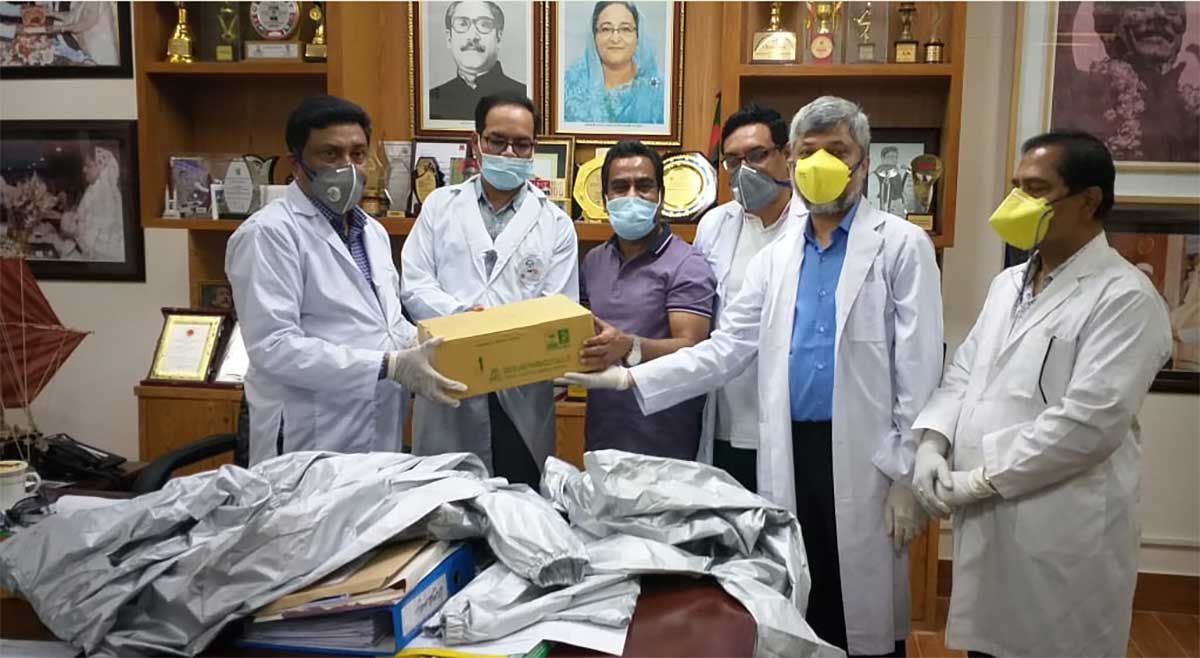 FUTURE OUTLOOK AND RECOMMENDATIONS
FUTURE OUTLOOK AND RECOMMENDATIONS
Learned Lessons from the COVID-19 response
- It is toughest to make the haor communities understand the seriousness of covid 19 pandemic.
- Children could play a vital role regarding Covid 19 awareness campaigning outside of their classroom such as family or community levels.
- It is necessary to understand that coordinated relief efforts are needed to avoid duplication in distribution.
- Potential partnership with government line agencies is needed to address communication gap and service effectiveness.
Anticipated future challenges
- Dengue mosquitoes would help to make a public health crisis in Dhaka city due to the puddle and high breeding in this season.
- The owner of chicken, dairy and fish firms would face deficit or loss because of the sell and supply shock.
- Bangladeshi nationals working in Middle Eastern countries are at risk of losing their jobs amidst the crisis.
- The growth of remittance would decline and the family of expatriates ultimately face poverty or economical crux.
- Small investors and individual craftsmen will face business loss simultaneously on coming Eid-ul-Fitr.
The following issue should be addressed through policy intervention
Policy intervention is needed for developing mid to long-term strategy for economic revitalisation of extreme poor people’s livelihood.
See more of BRAC’s work in COVID-19 response
Covid response: https://www.brac.net/covid19/en/donate/
Urban Slum Map: http://urbanslummap.brac.net/


